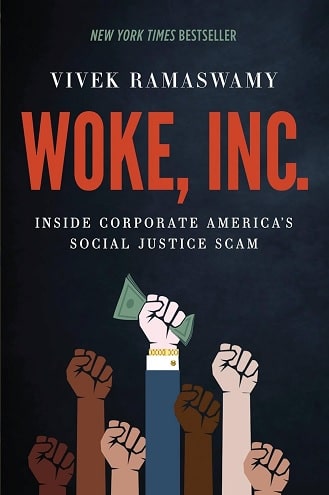The Walmart Foundation, a Microcosm of Woke Capital
Ford Foundation - Funding the Evil Empire
By Tyler Durden - QTR’s Fringe Finance via Durden Dispatch
In one of the most fascinating discussions I’ve had in a while, I spoke last weekend with my friend Andy Schectman about the state of the world, markets, geopolitics and the economy.
What started as a friendly catch-up quickly turned into delving into angles on the state of our nation that I had never before considered — specifically, Andy laying out one theory that started in the 1960’s that could explain the chaos that it appears our economy — and nation — is devolving into.
First, we talked about the bond market, excessive fiscal spending and why gold continues to be the answer. Andy told me: "I think it's a lot deeper than that, too. I think that we have proven to the rest of the world, largely through weaponizing of the dollar, that if you don't align ideologically with us, well, that's even a bigger problem. So, yeah, when you look at what gold has done over the past 25 years, it's outpaced the bond market, but it doesn't have the counterparty risk.”
“And I think that's really the big problem here,” he continued, explaining why he thinks the bond market will eventually lose its footing. “It's counterparty risk on top of brain-dead monetary policy and as irresponsible a fiscal policy as you could ever imagine. So, yes, I do think it is. And I don't know if 5% is the line in the sand. I mean, it just seems as though, according to Jim Willey, we can hand money to Ireland and the Caymans and the United Kingdom under the table to continue to, you know, continue the facade, if you will. as to who would be stupid enough to buy any treasuries of maturity, any U.S. bonds of length of maturity, 10-year or greater, who in their right mind would do that?"
Speaking about the Fed potentially cutting rates, Andy said: “Look, I think by cutting, we've lost all credibility at that point, complete and total credibility. And I don't think there is any way that they can lower rates. I really don't think that there is.”
“And I think there's nothing but inflation and higher rates ahead of us. But if I had to guess, it will be range bound, you know, just like there was no inflation and then it was transitory and then it was structural, then it was gone, then it was back. It'll be the same thing here,” he added.
As an example: “Well, the economy is a, you know, the economy is a little bit hotter than it was supposed to be. And also we're not going to be higher for longer. And, you know, but we're thinking of lowering and maybe we'll do two rate cuts by the end of the day. Okay. Maybe one, well, maybe we're not going to do it. They're not going to do shit. And I don't think they really can do much of anything.”
Andy says: “You know, they can't really raise rates because we have to sell $14 trillion in bonds this year to retire the maturing debt and also pay the current bills. And a lot of this debt's going to cost far more than the debt it's replacing, which could lead to even more printing to cover that cost. So you can't really raise rates.”
Andy then told me about the “Cloward–Piven theory”, which I had never heard of before.
The Cloward–Piven strategy is a political strategy outlined in 1966 by American sociologists and political activists Richard Cloward and Frances Fox Piven. The strategy aims to utilize "militant anti poverty groups" to facilitate a "political crisis" by overloading the welfare system via an increase in welfare claims, forcing the creation of a system of guaranteed minimum income and "redistributing income through the federal government"
The authors pinned their hopes on creating disruption within the Democratic Party, Wikipedia notes:
Capitalisn’t: Is ‘Woke’ Capitalism a Threat to Democracy?
In his book, Woke, Inc.: Inside Corporate America's Social Justice Scam, Vivek Ramaswamy, a scientist, lawyer, and former venture capitalist and entrepreneur, argues that “wokeism” has become a way for corporations to wrap themselves in a mantle, which then furthers the idea of crony capitalism and extends their power into spaces they were never meant to occupy. On this episode of the Capitalisn’t podcast, hosts Luigi Zingales and Bethany McLean sit down with Ramaswamy to discuss his perspectives on the roles of virtue, ethics, and politics in business and society. Podcast Audio Transcript @ Chicago Booth Review
